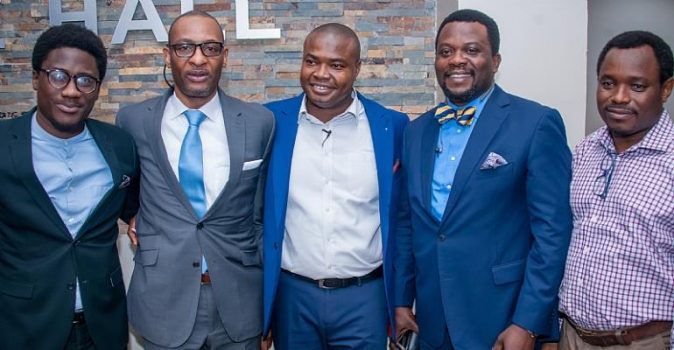Nduneche Ezurike, a Marketing Communication professional and employee with one of the leading commercial banks in Nigeria, has advocated a revolutionary shift in employee management in the modern workplace.
In his research work: “Employee MarketPlace – a study on employee engagement and workplace innovation in the millennial age,” Ezurike cautioned that organizations seeking to create happy moments and fat pay cheques as a strategy for achieving improved productivity are in for hard times in the era of the millennials.
He advised that they should instead pay greater attention to creating enabling environment which harnesses individual talents in the work place.
“In the era of innovation, there is little correlation between organizations with the highest wage package and its net productivity,” he declared.
Speaking further, Ezurike revealed that the Employee Marketplace is an engagement design, which seeks to harness employee self-interest to unlock organizational benefits of innovation and business growth.
“‘Employee Marketplace’ as a management model,” he continued, “provides a new paradigm on multi-teaming, employee self-interest and enterprise innovation.”
He further noted that forward-looking organizations must deliberately renew their attention on the traditional three Cs: communication, collaboration and community, stating that since engagement remains essentially an emotional activity involving passion, empathy and creativity, hence efforts to advance digital transformation must first understand employee self- interest and emotional intelligence.
The report showed how leaders can take advantage of the creative energies and talents of the millennials to achieve innovation within the organization.
The three-part presentation includes a video documentary of professional perspectives on employee engagement, theoretical reviews of the subsisting practices of employee engagement as well as quantitative survey report, which the convener conducted in partnership with the Chartered Institute of Bankers of Nigeria, titled: “The Millennial Voice.”
Undertaking a review of the current practice of employee engagement, Ezurike questioned the practical relevance of some of the existing theories on employee happiness, employee motivation and the Employee Engagement-Profit-Chain.
According to some highlights of the report, which was done in partnership with the CIBN, 41 per cent of the millennials state that competitive salary will make them put in their best, whilst 59 per cent believe that manpower development, reward and recognition will enable them offer their best service.
On the operating culture within their organization, 41 per cent of the millennials express dissatisfaction with it, whilst 11 per cent express confidence with their corporate culture.
The report also showed that 41.4 per cent of banks’ current employee engagement activities are focused mainly on employee awareness.
This figure is higher than product adoption (20.7%), regulatory information (13.8%) and change management (13.8%) respectively.
Sharing his opinion, Biodun Adedipe, the MD/CEO of Abiodun Adedipe and Co, commended the research initiative as a unique kind of research, an incisive effort to unravel the seeming mystery of the generation X and their work attitudes.
Also, Femi Awoyemi, MD/CEO, Proshare, expressed his excitement, stating: “The matter, which had always been discussed in hushed tones, is now brought to the center of agenda.”
Awoyemi noted the role of generation X to be that of supporter, facilitator and mentor to the young generation rather than competitor.
Charles Aigbe, the President of Association of Corporate Affairs Managers of Banks, lauded the depth of research undertaken by Ezurike, noting that it is in line with the association’s current effort to build the capacity of marketing communication professionals in the banking industry.
Michael Ebia, a millennial and CEO of Ade Digital, who confessed he had never witnessed a conversation centered on millennials, praised the session as an insightful one.
“Overall, I now see a wide difference between collaboration and co-operation; I also understand communication more as listening to the millennials,” Ebia declared.
The term Millennials is usually considered to apply to individuals who reached adulthood around the turn of the 21st century.
Millennials are estimated to constitute over 72 per cent of the global workforce by the year 2025, whilst over 50 per cent of employees in the banking sector are estimated to be in the millennial generation.
The initiative according to the convener, Ezurike, was designed to arm business leaders with the winning strategies in engaging millennial and Afrilennial employees as well as contribute to the global conversation on the role of millennials in the workplace, especially in mid to large organisations.

